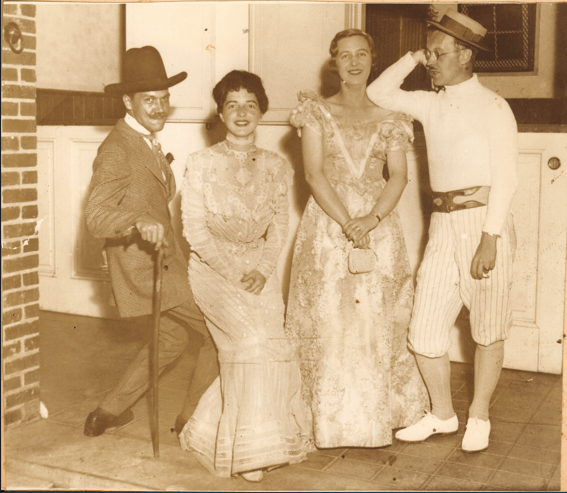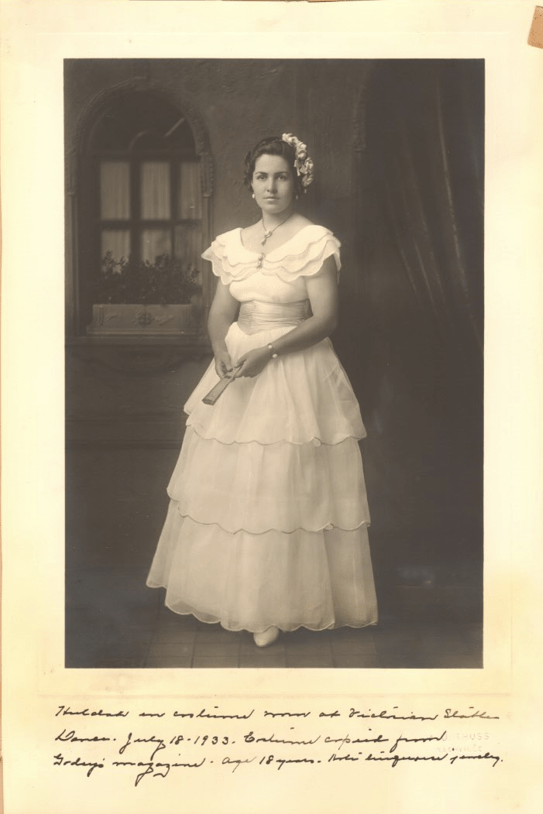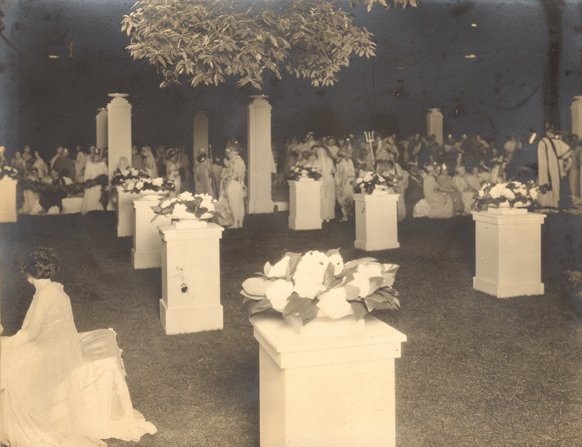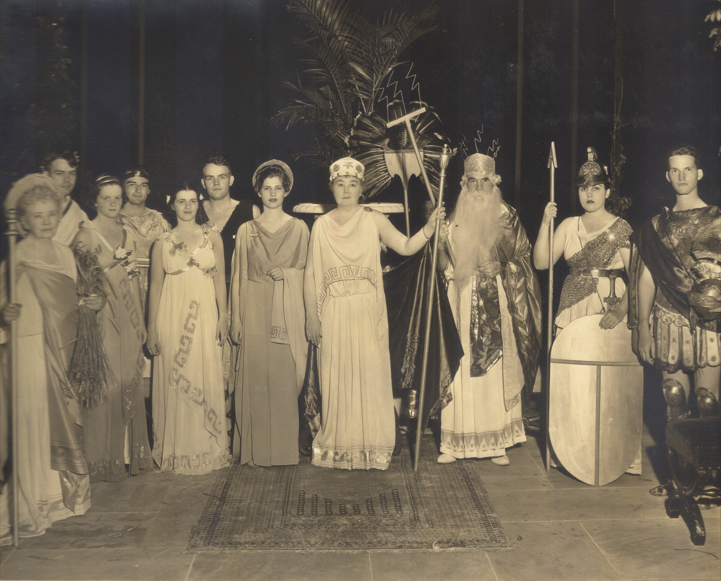Costume parties had been a longstanding Nashville social tradition when Leslie Cheek, Jr., let his imagination conjure summer evening galas at the family’s newly completed country estate, Cheekwood. The guests would be required to arrive en déguisement, a festive custom the Cheek family well knew from the Dinner Club’s annual “Costume Ball” held downtown at the Hermitage Club, the old Renaissance-Revival building located between Church and Union Streets. Some Nashvillians ordered costumes from dressmakers, but others enjoyed cobbling together a patchwork of wearables to suggest western ranch wear, nautical garb, or Sherwood Forest’s own Robin Hood. In any case, the photographers and reporters for Nashville’s Tennessean and Banner newspapers were on hand to memorialize the evening.
Leslie Cheek, at twenty-four years of age, imagined his costume parties based on distinct historical periods so that guests would coordinate and complement one another’s appearance. The young man might have recalled other such historically themed parties, especially those honoring President George Washington, for Washington’s Birthday prompted elaborate national celebrations from schoolrooms to ballrooms, and social occasions that ranged from afternoon teas to formal balls. (In 1925, the Finitimus Club of East Nashville held a banquet in which “The George Washington Birthday motif was featured in every appointment…and club members were appropriately dressed in colonial costumes.”) Annually in February, the gentlemen’s powdered wigs and knee britches, together with ladies’ floor-length gowns with snug sleeves commemorated the first President and his lady, Martha Washington. The year 1933 was just after the bicentennial of Washington’s birth, and thoughts of eighteenth-century costuming apparently gave young Leslie Cheek his idea for a party centered on a distinct historical era.

The “Victorian Stable Party” on July 18, 1933 asked Cheekwood’s guests to don the gowns and formal evening suits of Queen Victoria’s era, then to enjoy the informality of the setting, the Cheekwood stable where refreshments were served near the stalls where horses and automobiles kept company. The guests happily complied with the request that they step into history in their clothing, for photographs show gentlemen in top hats and formal (swallowtail) coats, while ostrich plumes waved on ladies’ broad-brimmed hats, and their gowns reached to the floor, since no Victorian lady dared bare an ankle. Leslie’s guests might not have imagined that the festive Victorian Stable Party was not to be their only occasion for historical costuming at Cheekwood, for their host would soon summon friends and family for a second evening of historical costuming, one vastly different from the era of Queen Victoria.

Leslie reached much deeper into the past for a party the next year. On July 10, 1934, the mansion’s Loggia and Swan Lawn were transformed into a Greek acropolis for the costume ball whose theme was Greek and Roman mythology. In their invitations, guests were assigned either a Greek or Roman god or goddess, and they were expected to arrive in costume for the evening, as they did. We imagine the partygoers congratulating one another on their classical apparel. Among the Cheeks, Mrs. Cheek’s mother went as Ceres, the goddess of agricultural bounty. Leslie Sr. was Zeus, the mighty ruler, and Mrs. Cheek (Mabel) was Hera, the goddess of motherhood and marriage. Huldah was Athena, associated with wisdom, crafts, and warfare. Leslie had designed the invitations and assigned himself the identity best suited to the host. A student of architecture, he came as Iktinos, the architect of the Parthenon in Athens, Greece. The architect of two successful summer parties, Leslie well deserved the honor.

Blog post provided by Cheekwood’s Writer-in-Residence, Cecelia Tichi, Ph.D.
Cecelia Tichi is an award-winning author and Professor of English and American Studies Emerita at Vanderbilt University. Her books span American literature and culture from colonial days to modern times, but her recent work draws upon the Gilded Age (post-1870) that prompted her book on Jack London and another on seven activists in that tumultuous era.
Cecelia’s research and teaching inspired What Would Mrs. Astor Do? The Essential Guide to the Manners and Mores of the Gilded Age, followed by Gilded Age Cocktails and Jazz Age Cocktails , which set the stage for her mystery crime novels that boast “Gilded” in each title.
Cecelia can be followed on her website: https://cecebooks.com/

